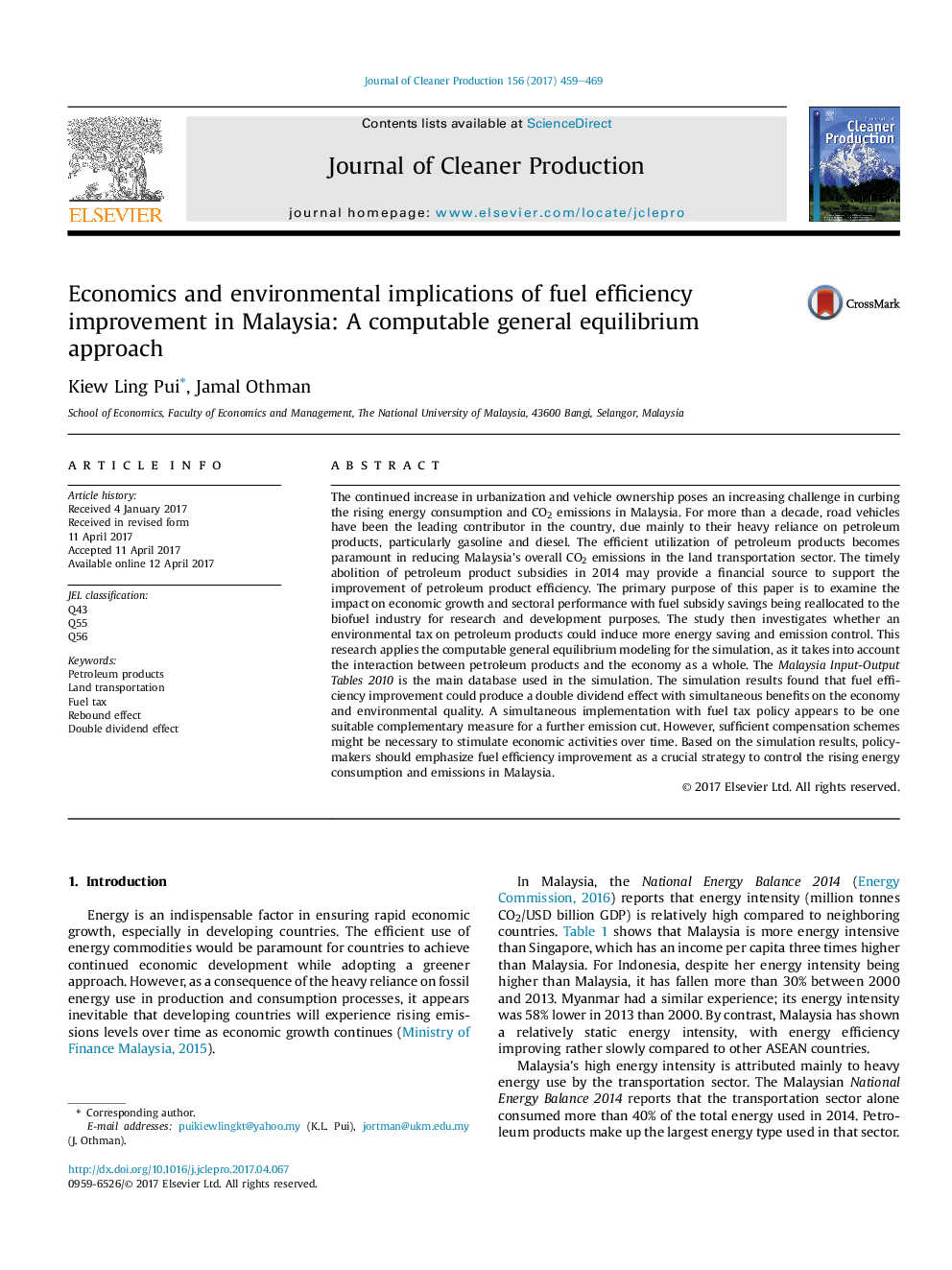| Article ID | Journal | Published Year | Pages | File Type |
|---|---|---|---|---|
| 5481001 | Journal of Cleaner Production | 2017 | 11 Pages |
Abstract
The continued increase in urbanization and vehicle ownership poses an increasing challenge in curbing the rising energy consumption and CO2 emissions in Malaysia. For more than a decade, road vehicles have been the leading contributor in the country, due mainly to their heavy reliance on petroleum products, particularly gasoline and diesel. The efficient utilization of petroleum products becomes paramount in reducing Malaysia's overall CO2 emissions in the land transportation sector. The timely abolition of petroleum product subsidies in 2014 may provide a financial source to support the improvement of petroleum product efficiency. The primary purpose of this paper is to examine the impact on economic growth and sectoral performance with fuel subsidy savings being reallocated to the biofuel industry for research and development purposes. The study then investigates whether an environmental tax on petroleum products could induce more energy saving and emission control. This research applies the computable general equilibrium modeling for the simulation, as it takes into account the interaction between petroleum products and the economy as a whole. The Malaysia Input-Output Tables 2010 is the main database used in the simulation. The simulation results found that fuel efficiency improvement could produce a double dividend effect with simultaneous benefits on the economy and environmental quality. A simultaneous implementation with fuel tax policy appears to be one suitable complementary measure for a further emission cut. However, sufficient compensation schemes might be necessary to stimulate economic activities over time. Based on the simulation results, policymakers should emphasize fuel efficiency improvement as a crucial strategy to control the rising energy consumption and emissions in Malaysia.
Related Topics
Physical Sciences and Engineering
Energy
Renewable Energy, Sustainability and the Environment
Authors
Kiew Ling Pui, Jamal Othman,
